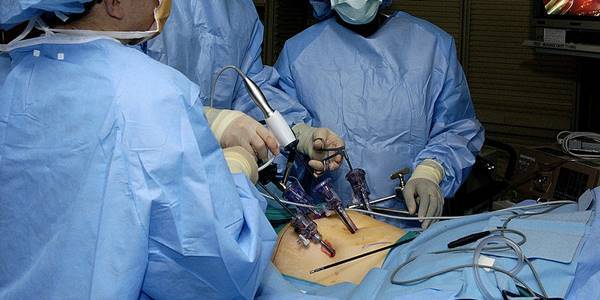
Laparoscopic Cancer Surgery
Laparoscopic surgery is commonly called “minimally invasive” surgery because it involves smaller incisions than traditional open surgery. Incisions are typically 0.5-1 cm, compared with several inches for open surgery. Laparoscopic surgery may be a treatment option for cancer patients.
Laparoscopy, also known as diagnostic laparoscopy, is a surgical diagnostic procedure used to examine the organs inside the abdomen. It’s a low-risk, minimally invasive procedure that requires only small incisions. Oncologist uses it to find out if cancer of the stomach has spread.
Laparoscopy uses an instrument called a laparoscope to look at the abdominal organs. A laparoscope is a long, thin tube with a high-intensity light and a high-resolution camera at the front. The instrument is inserted through an incision in the abdominal wall. As it moves along, the camera sends images to a video monitor.
Laparoscopy allows your doctor to see inside your body in real time, without open surgery. Your Oncologist also can obtain biopsy samples during this procedure. You’re more likely to have a laparoscopy if the cancer is where your food pipe joins the stomach.
In many cases, abdominal problems can also be diagnosed with imaging techniques. Generally, Laparoscopy is performed when these tests don’t provide enough information or insight for a diagnosis. The procedure may also be used to take a biopsy, or sample of tissue, from a particular organ in the abdomen.
Advantages –
- Compared to traditional open surgery, patients often experience less pain, a shorter recovery, and less scarring with laparoscopic surgery
- Generally, Laparoscopy is performed when these tests don’t provide enough information or insight for a diagnosis. The procedure may also be used to take a biopsy, or sample of tissue, from a particular organ in the abdomen.
Laparoscopic surgery is used for several types of operations, including:
- Gynecologic
- Gallbladder
- Esophageal
- Colon
- Stomach
- Spleen
- Intestinal

